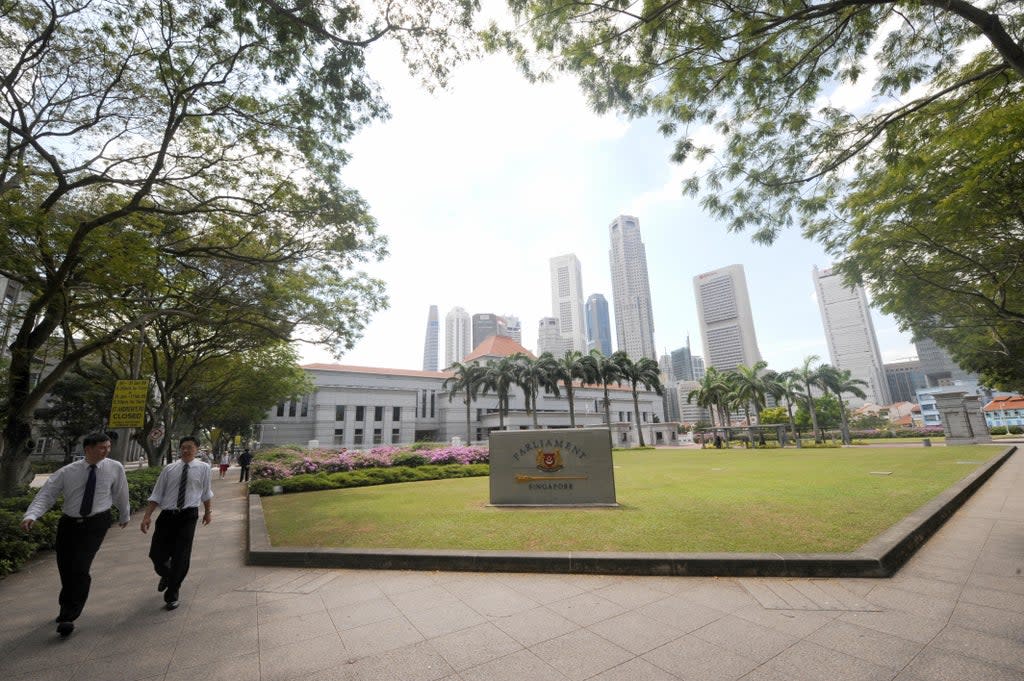Singapore passes law ‘banning foreign interference’ despite rights concerns

A controversial law that aims to crack down on “foreign interference” in domestic affairs and counter “serious threats” was passed by the Singapore parliament on Monday, even as critics said the law can be used to stifle dissent.
The Foreign Interference Countermeasures Act (FICA) grants sweeping powers to authorities to compel internet service providers and social media platforms to provide user information or block content they deem to be hostile.
It also allows the government to designate individuals or organisations as “politically significant persons” if their work is deemed to be directed towards a political end. These individuals or organisations, however, are not allowed to challenge such a designation.
“The tactics of foreign interference are evolving and the Foreign Interference (Countermeasures) Bill is important to tackle foreign interference attempts conducted through hostile information campaigns and local proxies,” said Singapore’s Ministry of Home Affairs.
The tactics of foreign interference are evolving and the Foreign Interference (Countermeasures) Bill is important to tackle foreign interference attempts conducted through hostile information campaigns and local proxies. https://t.co/o7j2qZ1877 pic.twitter.com/EN9Ung2KUF
— Ministry of Home Affairs, Singapore (@mhasingapore) October 5, 2021
According to the law, an offence is committed if an individual or organisation publishes something to “influence a target to do something that is or is likely to be prejudicial to Singapore’s interests, incite feelings of hatred or diminish public confidence in the authorities”.
It also allows the country’s home minister to order investigations in the public interest to “expose hostile information campaigns” based on suspicion of foreign interference.
Instead of an open court, an independent judge will hear appeals against the minister’s decisions, something the government says is important as it may involve issues sensitive to national security.
Breaking the law could lead to a heavy fine or a jail term.
“This Bill is intended to address a serious threat that concerns our national security and sovereignty,” K Shanmugam, the law and home affairs minister, told the BBC. “And these are important to ensure that Singaporeans continue to make our own choices on how we should govern our country and live our lives,” he added.
While the Singapore government clarified that the law would not apply to Singaporeans or any matter advocated by Singaporeans, critics said it could lead to abuse of power by the government.
There have been some concerns arising from a misunderstanding of the Foreign Interference (Countermeasures) Bill (FICA). The Bill does not apply to Singaporeans discussing issues, or advocating any matter.
Read on to understand more: https://t.co/DSqMF3Flx1— Ministry of Home Affairs, Singapore (@mhasingapore) October 2, 2021
“Basically, Singapore’s ruling party has decided that it must eradicate any remaining political threat to its power, and it will use ‘foreign influence’ as the bogeyman to justify the surveillance, discriminatory targeting and violations of civil and political rights to follow,” Phil Robertson, the deputy Asia director of Human Rights Watch, said in a statement.
"Basically, #Singapore’s ruling party has decided that it must eradicate any remaining political threat to its power, and it will use ‘foreign influence’ as the bogeyman to justify the surveillance, discriminatory targeting and violations of civil and political rights to follow”
— Phil Robertson (@Reaproy) October 5, 2021
Concerns have also been raised by Facebook on the broad nature of the law.
“Foreign interference as a concept is actually a very broad concept,” Nathaniel Gleicher, Facebook’s Head of Security Policy, was quoted as saying by The Straits Times.
“You can imagine it covering both a covert operation that misleads people about what’s happening, and who’s behind it; and an open public effort to persuade being run by an authentic NGO (non-governmental organisation) or community of users.
“Lumping those two things together is tricky and can lead to some real challenges. One of the things we’re going to be looking for is exactly how these divisions are broken up,” he added.
With the passage of the law, Singapore joins countries like Australia and Russia in passing legislation to deter foreign interference.
Read More
China calls for huge boost in coal output to fight power crunch
Malaysia becomes latest country to approve Pfizer booster shots for Covid
Temples in Thailand’s historic city of Ayutthaya underwater post heavy monsoon floods
Cambodia bat researchers on the hunt for Covid origins
Boxer Manny Pacquiao to run for president of Philippines in 2022
Indonesia court ruling finds president, top officials ‘negligent’ for air pollution


